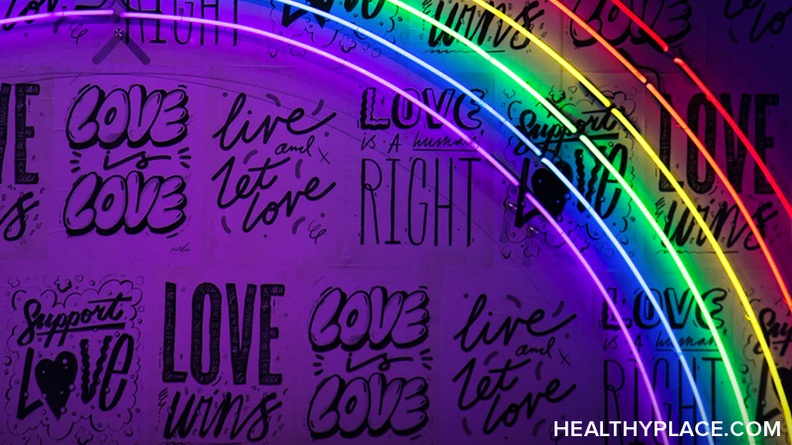Depression and Mental Health Emerge as Major Concerns for the Community
Community Health Survey Reveals Top Concern of Gay Men and Lesbians
A health survey conducted by K-Y Brand® Liquid at the Millennium March on Washington revealed that and mental health are among the most serious health concerns for gay men and lesbians. depression
Depression and mental health topped a list of health concerns that included, among other things, HIV/AIDS, , heart disease, aging and eating disorders. In fact, the issue of depression and mental health was the number one concern for lesbians and the number one concern for gay men after HIV/AIDS. drug use
"Depression and mental health are serious issues for the gay and lesbian community," said Dr. Stephen Goldstone, a physician who operates a predominantly gay practice in New York City. "This survey helps shed light on a problem that has long existed, but has received little attention."
Almost 75 percent of the respondents to the survey believe that depression is more common among gay men and lesbians than in the general population. Goldstone noted that it's no surprise that gay men and lesbians identified depression and mental health as a major concern, given the daily challenges that they face. Living openly or closeted each bring their own pressures that can affect a person's health and it can stem from a sense of isolation that so many feel, he said.
The problem of depression may also be heightened or caused by an individual's behavior, added Goldstone. For example, the degree to which someone uses illegal drugs or consumes alcohol can affect his or her mental health. Interestingly, these issues also ranked high as health concerns among gay and lesbian respondents.
A significant finding from the survey was the common use of "party drugs" among gay male respondents. Nearly 40 percent of gay men surveyed at the Millennium March said that "party drugs," such as cocaine, special K, crystal, ecstasy and GHB, are used at least once a month or more among their close circle of friends. On a positive note, an almost equal number, more than 38 percent, said that "party drugs" are never used among their close circle of friends.
Also significant was the finding that lesbians ranked alcohol abuse as their second highest health concern for the community after depression and mental health. More than 30 percent of gay men reported the same concern.
"What we are seeing is that mental and behavioral health are among the most pressing concerns for gay men and lesbians," said Goldstone. "Medical professionals need to recognize that these issues should be an integral part of any patient evaluation and they should treat patients accordingly. Gay and lesbian health is more than just sexual practices."
Other findings of the survey include:
· More than 70 percent of lesbians and more than 60 percent of gay men have sought or are actively considering mental health counseling.
· When asked where LGBT health organizations should focus their attention in the year 2000 and beyond, respondents identified depression as their #1 choice after HIV/AIDS.
· Seventy-five percent of those surveyed believe that drug, alcohol and tobacco addiction are greater in the gay community than in the general public.
· Almost 90 percent of gay men believe that "party drugs" are a threat to the health of the community.
· Almost 40 percent of gay men surveyed said that a partner has pressured them to have unprotected or unsafe sex.
· Nearly one in four respondents reported having been struck or hit by a boyfriend or girlfriend. (In many instances, gay and lesbian victims of domestic violence receive fewer protections than heterosexuals under various state laws and have fewer support services available to them, according to the American Bar Association. The fear of being "outed," or perceived law enforcement bias, may also limit reporting.)
· More than 83 percent of gay men and lesbians surveyed feel it is important or very important to have a gay or gay-friendly physician.
The vast majority of gay men and lesbians who completed the survey were out to family and close friends 97.6 percent and 86.3 percent, respectively. And more than 72 percent reported that their doctor knows they are gay.
"In light of the findings on depression and mental health, it's very encouraging to see such a large number of people living openly and honestly," said Goldstone. "Events such as the Millennium March and gay pride celebrations can play a crucial role in the development of a positive self-image. Gay men and lesbians need to know that they are not alone."
The K-Y Brand® Liquid Community Health Survey was conducted over a two-day period at the Millennium March in Washington, DC and asked respondents for their opinions on a wide range of health-related issues, including their personal health concerns, concerns for the health of the community and the future direction of gay and lesbian health care.
More than 1,200 gay men and lesbians were surveyed for the K-Y Brand® Liquid Community Health Survey. It is the third in a series of surveys targeting the gay and lesbian community conducted by K-Y Brand® Liquid. The first survey dealt with HIV/AIDS. The second explored the community's knowledge, attitudes and opinions about sexually transmitted diseases.
|
|
back to: Gender Community Homepage ~ Depression and Gender ToC
APA Reference
Staff, H.
(2008, September 5). Depression and Mental Health Emerge as Major Concerns for the Community, HealthyPlace. Retrieved
on 2025, November 24 from https://www.healthyplace.com/gender/depression-and-gender/depression-and-mental-health-emerge-as-major-concerns-for-the-community

